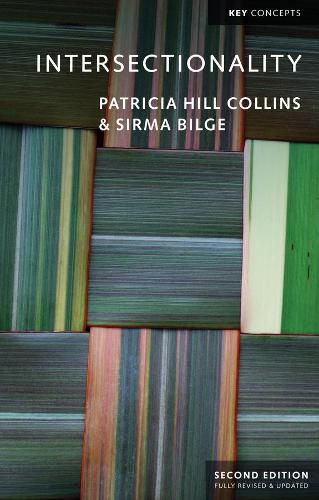Readings Newsletter
Become a Readings Member to make your shopping experience even easier.
Sign in or sign up for free!
You’re not far away from qualifying for FREE standard shipping within Australia
You’ve qualified for FREE standard shipping within Australia
The cart is loading…






The concept of intersectionality has become a central topic in academic and activist circles alike. But what exactly does it mean, and why has it emerged as such a vital lens through which to explore how social inequalities of race, class, gender, sexuality, age, ability, and ethnicity shape one another?
In this fully revised and expanded second edition of their popular text, Patricia Hill Collins and Sirma Bilge provide a much-needed introduction to the field of intersectional knowledge and praxis. Analyzing the emergence, growth, and contours of the concept of intersectionality, the authors also consider its global reach through an array of new topics such as the rise of far-right populism, reproductive justice, climate change, and digital environments and cultures. Accessibly written and drawing on a plethora of lively examples to illustrate its arguments, the book highlights intersectionality’s potential for understanding complex architecture of social and economic inequalities and bringing about social justice-oriented change.
Intersectionality will be an invaluable resource for anyone grappling with the main ideas, debates, and new directions in this field.
$9.00 standard shipping within Australia
FREE standard shipping within Australia for orders over $100.00
Express & International shipping calculated at checkout
The concept of intersectionality has become a central topic in academic and activist circles alike. But what exactly does it mean, and why has it emerged as such a vital lens through which to explore how social inequalities of race, class, gender, sexuality, age, ability, and ethnicity shape one another?
In this fully revised and expanded second edition of their popular text, Patricia Hill Collins and Sirma Bilge provide a much-needed introduction to the field of intersectional knowledge and praxis. Analyzing the emergence, growth, and contours of the concept of intersectionality, the authors also consider its global reach through an array of new topics such as the rise of far-right populism, reproductive justice, climate change, and digital environments and cultures. Accessibly written and drawing on a plethora of lively examples to illustrate its arguments, the book highlights intersectionality’s potential for understanding complex architecture of social and economic inequalities and bringing about social justice-oriented change.
Intersectionality will be an invaluable resource for anyone grappling with the main ideas, debates, and new directions in this field.